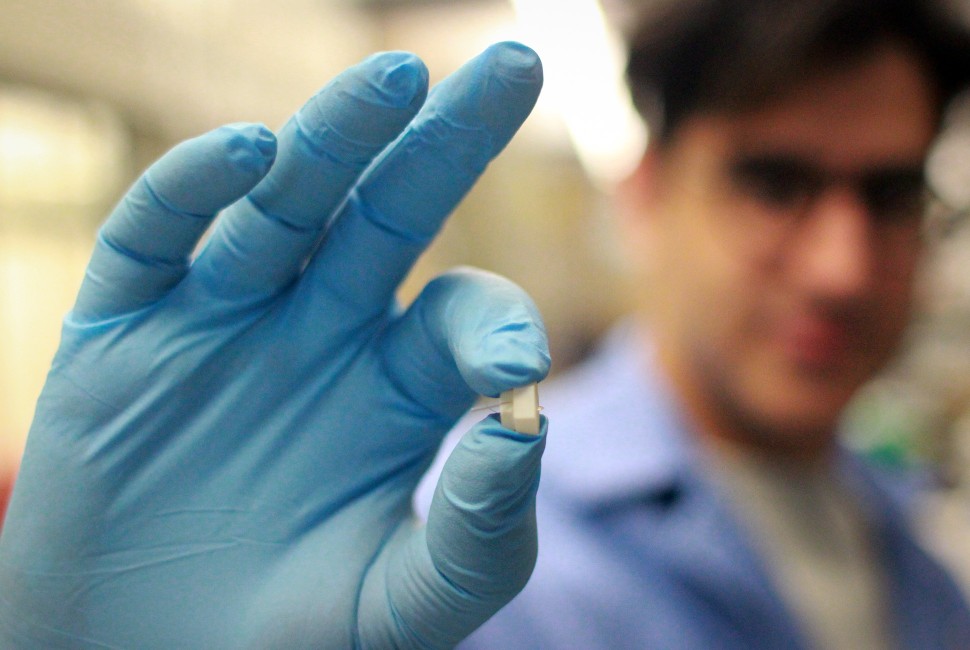Northwestern University scientists have designed a new implantable device that can monitor fluctuating levels of proteins within the body in real time.
Inspired by fruit shaking off the branches of a tree, the device comprises strands of DNA that stick to proteins, shake them off and then grab more proteins. This creative strategy enables the device to sample various proteins over time to measure changes in inflammatory markers.
In proof-of-concept experiments, the sensors accurately and sensitively measured protein biomarkers of inflammation in diabetic rats. The work lays the foundation for the real-time management and prevention of acute and chronic conditions through the tracking of critical proteins, such as cytokines in inflammation, protein biomarkers in heart failure and many others.
The study was published on Friday (Dec. 6) in the journal Science.
“The device’s design is analogous to a continuous glucose monitor that sits on your arm and measures levels right beneath your skin,” said Northwestern’s Shana O. Kelley, who led the study. “You can see that your glucose levels are increasing in real time. But then maybe you take your insulin, and your glucose goes back down. You need to be able to measure trends in the wrong direction and trends in the right direction. It’s the same with proteins in inflammation. We need to track fluctuations in order to get a full picture of what’s happening in the body. This is a completely new capability — to be able to watch inflammation in real time. There are a huge number of applications that we are now beginning to explore.”

